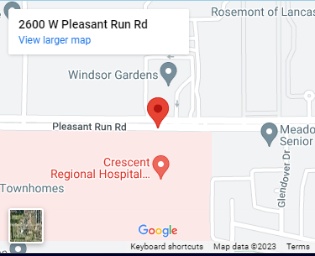Job Summary
Provides direct and indirect patient care in the Medical Surgical and Telemetry care setting. Coordinates patient care, educates patients and the public about various health conditions, and provides emotional support to patients. Communicates with physicians about changes in patient’s clinical condition including hemodynamic monitoring, as well as results of diagnostic studies and symptomatology. Initiates directions from physician and advanced practice practitioners appropriately. Is able to respond quickly and accurately to changes in condition or response to treatment. Participates in performance improvement activities. Maintains regulatory agency requirements, nursing and hospital policies and procedures and standards.
Demonstrates Competency in the Following Areas
- Ability to perform a head-to-toe assessment on all patients and reassessments as per policy. This includes pediatric, adult, adolescent, geriatric, and the general patient population.
- Ability to formulate an individualized plan of care, revise plan as indicated by the patient’s response to treatment and evaluate overall plan daily for effectiveness.
- Demonstrates knowledge of the principles of growth and development over the life span and the skills necessary to provide age-appropriate care to the patient population served. Able to interpret data about the patient’s status in order to identify each patient’s age-specific needs and provide care needed by the patient group.
- Knowledge of medications and their correct administration based on the age of the patient and their clinical condition.
- Follows the seven (7) medication rights and reduces the potential for medication errors.
- Performs patient care responsibilities considering needs specific to the standard of care for the patient’s age.
- Ability to monitor the hemodynamic status of the patient and correctly interpret the results.
- Ability to adequately assess and reassess pain. Utilizes appropriate pain management techniques. Educates the patient and family regarding pain management.
- Demonstrates knowledge of cardiac monitoring, identifies dysrhythmias, and intervenes appropriately.
- Provides care to patients with compromised nutritional/metabolic status.
- Provides care to patients requiring extensive fluid and electrolyte management.
- Performs all aspects of patient care in an environment that optimizes patient safety and reduces the likelihood of medical/health care errors.
- Supports and maintains a culture of safety and quality.
- Demonstrates an ability to assist physicians with procedures and performs services requiring technical and manual skills.
- Demonstrates ability to perform treatments and provide services to level licensure.
- Treats patients and their families with respect and dignity. Identifies and addresses psychosocial, cultural, ethnic, and religious/spiritual needs of patients and their families. Functions as a liaison between administration, patients, physicians, and other healthcare providers.
- Interacts professionally with patient/family and involves patient/family in the formation of the plan of care.
- Ability to perform waived testing (point-of-care testing) per Clinical Laboratory’s and the patient care unit’s policies and procedures.
- Ability to interpret results of waived tests; take appropriate action on waived test results.
- Communicates appropriately and clearly to the immediate supervisor, co-workers, and physicians.
- Consults other departments as appropriate to provide for an interdisciplinary approach to the patient’s needs.
- Provides care appropriate to disease condition and age of the patient.
- Coordinates and supervises patient care as necessary.
- Demonstrates an ability to assist physicians with procedures in the Medical Surgical / Telemetry Unit.
- Demonstrates an ability to be flexible, organized, and function well under stressful situations.
- Interacts professionally with patient/family and involves patient/family in the formation of the plan of care.
- Maintains a good working relationship both within the department and with other departments.
- Documentation meets current standards and policies.
- Participates in performance improvement activities.
Professional Requirements
- Adheres to dress code, appearance is neat and clean.
- Completes annual education requirements.
- Maintains regulatory requirements.
- Maintains patient confidentiality at all times.
- Reports to work on time and as scheduled, completes work within designated time.
- Wears identification while on duty, uses computerized punch time system correctly.
- Completes in-services and returns in a timely fashion.
- Attends annual review and department in-services, as scheduled.
- Attends at least 2/3 of scheduled staff meetings annually, reads and returns all monthly staff meeting minutes or as required by the manager.
- Represents the organization in a positive and professional manner.
- Actively participates in performance improvement and continuous quality improvement (CQI) activities.
- Complies with all organizational policies regarding ethical business practices.
- Communicates the mission, ethics and goals of the facility, as well as the focus statement of the department.
Regulatory Requirements
- Graduate of an accredited school of nursing.
- Current state Registered Nurse Licensure in state of Texas.
- Successful completion of a dysrhythmia recognition course or successful completion of cardiac rhythm interpretation test as per Nursing Education.
- Current BLS certification.
Language Skills
- Able to communicate effectively in English, both verbally and in writing.
- Additional languages preferred.
Skills
- Basic computer knowledge.
- Knowledge of nursing care methods and procedures, sterile technique, medical terminology.
- Knowledge of safe use of various medical equipment.
Physical Demands
- For physical demands of position, including vision, hearing, repetitive motion and environment, see following description.
Reasonable accommodations may be made to enable individuals with disabilities to perform the essential functions of the position without compromising patient care.
Description of physicial demands


